SUMMARY
This is AI generated summarization, which may have errors. For context, always refer to the full article.
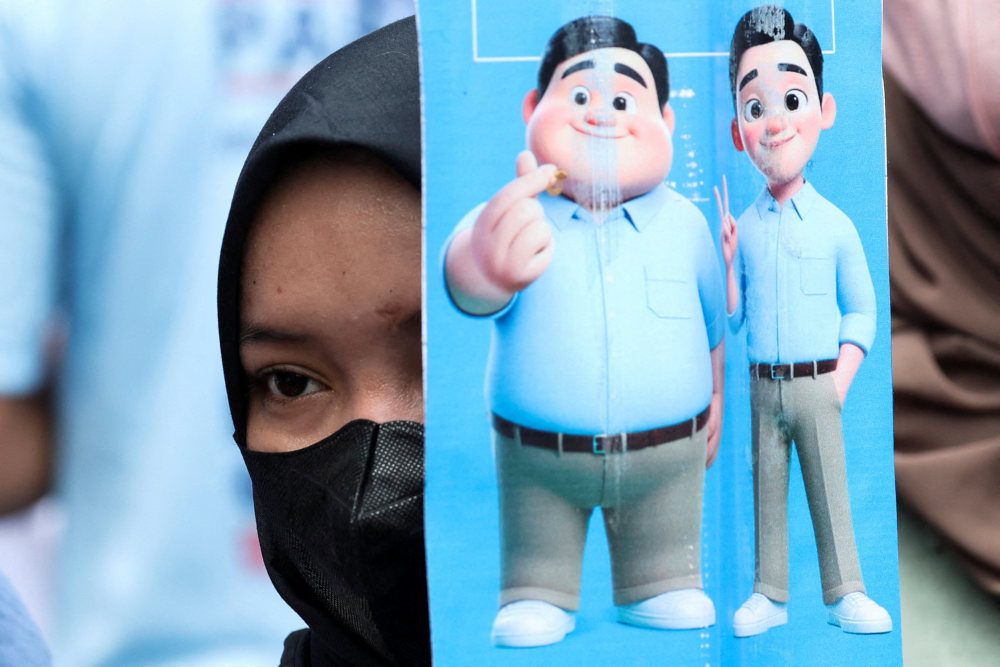
MANILA, Philippines – Earlier this month, on Wednesday, February 14, Indonesia elected Prabowo Subianto as their next president. For older Indonesians, they remember Prabowo for his human rights abuses under the brutal Suharto dictatorship, which ended only 25 years ago.
But for younger Indonesian voters, they know Prabowo as a “cuddly grandpa.”
For his 2024 campaign, Prabowo greatly benefited from a major rebrand, thanks to generative AI (genAI). A cute, chubby-cheeked cartoon version of Prabowo, generated using text-to-image genAI tool Midjourney, is often shown dancing in viral videos across social media. These videos often used the word “gemoy,” which is Indonesian slang for cute and cuddly.
This isn’t Prabowo’s first presidential election – he ran in Indonesia’s 2014 and 2019 elections, losing to incumbent President Joko Widodo both times. In his first two presidential bids, he portrayed himself as a fierce nationalist. But he’s since ditched the nationalist branding, and it’s his “gemoy,” AI-fueled reputation that finally won him the presidential seat.
Third time’s the charm for Prabowo, who made the most out of newer technologies and social media platforms like TikTok. The election results also proved that Prabowo successfully catered to the country’s young voter base – majority of whom are millennial and Gen Z Indonesians.
What happened in Indonesia
Indonesian journalist Ika Ningtyas, fact-checking coordinator for Tempo Media and secretary-general of the The Alliance of Independent Journalists, said the country’s 2024 election is vastly different from previous elections.
In an interview with Rappler, Ningtyas said previous Indonesian elections were mainly marked by disinformation and hate speech – and while these were still present in the country’s 2024 polls, these were overshadowed by how candidates were more focused on portraying themselves as “tolerant leaders.”
“[I think] the use of [cartoons] with AI generative facilities is a form of information manipulation that [has not happened] before,” she said.
Apart from Prabowo’s viral AI-generated cartoon, there were also deepfake videos of the late dictator Suharto circulating on social media ahead of Indonesia’s election day.
Nadia Naffi, assistant professor at Université Laval in Quebec, Canada, said academics like herself who research digital disinformation had anticipated how generative AI could harm democratic processes like elections. Naffi admitted, however, that the recent incident in Indonesia’s election was “surprising in its scale and immediacy.”
“This incident…underscores the growing concern among researchers about the potential misuse of deepfakes and AI-generated content…. Although the specific use of generative AI in the Indonesian election wasn’t predicted in exact terms, the trend towards its misuse in political contexts was anticipated,” Naffi said in an interview with Rappler.
Ningtyas also noted that apart from the abuse of technology and disinformation present in the 2024 elections, Prabowo also benefited from the ways incumbent President Jokowi “[abused] his power” to make his son, Gibran Rakabuming Raka, win the vice presidential seat.
Gibran was Prabowo’s 2024 running mate, and has faced criticism from how nepotism propelled his political career. Gibran is currently 36, which would have made him ineligible to run for vice president, as candidates are required to be at least 40 years old. But Indonesia’s court lifted the ban to make an exception for Gibran, which led to accusations that Jokowi was building his own political dynasty.
Ningtyas also attributed Prabowo’s election victory to the insufficient political and historical education on his past human rights abuses, allowing him to rebrand more easily.
“With the help of generative AI, the [Prabowo-Gibran campaign] produced animations or cartoons that transformed Prabowo’s figure to be much younger…and [to] look more [like a] funny grandpa. [It’s] a strategy to shift the public’s focus from Prabowo’s past human rights abuses and cover the issue of nepotism,” she said.
This year’s election is also not the first time social media saw sketchy campaigns supporting Prabowo. In 2019, Facebook announced that they took down a fake network of Indonesian pages, accounts, and groups that engaged in coordinated inauthentic behavior to promote pro-Prabowo propaganda.
Generative AI and other threats to elections and democracy
Naffi’s previous research on generative AI consistently focused on its “dual nature” – while she recognizes its “capacity for innovation and democratization,” she had always underscored “the risks [AI poses] to the integrity of information.”
When it comes to elections, Naffi said AI can be especially harmful not just because of its ability to create misleading content, but also its ability to “[hyper-personalize] messages that exploit individual vulnerabilities,” which can “[deepen] societal divisions.” (READ: Rapid AI proliferation is a threat to democracy, experts say)
“There’s also the danger of fabricating entirely false audiovisual content that can undermine trust in public figures and institutions,” she said.
Ningtyas also explained that Indonesia has “problematic laws” that are weaponized to crack down on criticism instead of addressing disinformation.
“Indonesia does not have a policy [that tackles] disinformation that is based on a human rights approach. Instead, they use a number of articles from problematic laws to silence criticism under the pretext of fighting disinformation,” she said.
For instance, media groups and legal experts sounded the alarm over the country’s Electronic Information and Transactions (ITE) Law, as it has the potential to “undermine freedom of expression and freedom of the press.”
“Under the [ITE Law], there are articles on defamation and consumer false news, but they are misused to criminalize those who have an opinion… their criticism [is labeled] as hoaxes,” Ningtyas explained.
The same has been said of libel in the Philippines. Government officials and bodies, press freedom advocates, and activists in the Philippines have tackled the possibility of decriminalizing libel, as it stifles dissent and threatens the free press. (Criminalizing ‘fake news’: Why it won’t work)
Lessons for the Philippines and the world
When it comes to mitigating harms brought about by AI and other tech, Naffi strongly advocated for a comprehensive strategy that not only covers technological solutions, but focuses on education and digital literacy.
“From the incident in Indonesia, the Philippines and other nations can learn the importance of proactive digital literacy and the crafting of adaptable regulatory frameworks to counter the rapid evolution of AI technologies,” she said.
Naffi emphasized the importance of educating individuals, particularly the youth, on how to navigate emerging technologies and digital disinformation. She also stressed the need to include vulnerable groups in these initiatives, to ensure all segments of society are equipped to critically engage with tech and new forms of digital manipulation.
In an article published earlier in February, Naffi wrote and researched about how human intervention through education can empower the youth to engage critically with deepfakes. She explained that legal systems and governments are struggling to keep up in combating new forms of digital manipulation, and stressed the importance of integrating deepfake education into existing curricula.
“The human element, particularly the role of education, is indispensable in the fight against deepfakes. We cannot rely solely on technology and legal fixes,” she wrote.
Beyond education, Naffi also highlighted the need for international cooperation in “establishing ethical standards for AI use in political campaigning.”
“Such preparedness is essential for safeguarding against digital disinformation, ensuring that technological advancements serve to support, rather than undermine, democratic values and processes,” Naffi said.
AI companies have made efforts to prevent their tools from being abused. Midjourney’s Terms of Service explicitly prohibit generating images for political campaigns, and OpenAI is working on preventing political abuse in the lead-up to elections across the globe.
Some social media companies, such as Meta, have also worked on banning political advertising using AI tools. However, journalists like Ningtyas and other watchdogs have criticized social media platforms for being too slow to take action.
“Social media platforms are also very late in [taking] action…. [They] fail to anticipate or take quick action when generative AI is used as a gimmick campaign,” Ningtyas said.
Ningtyas also explained how Indonesia’s recent election can serve as a reminder for citizens and watchdogs to keep an eye out for campaigns that may distract voters from critical issues.
“Indonesia can be an important lesson, that the current development of generative AI…is very powerful for gimmick campaign strategies that can cover important issues [surrounding] candidates that can endanger democracy,” she said. – Rappler.com
Add a comment
How does this make you feel?
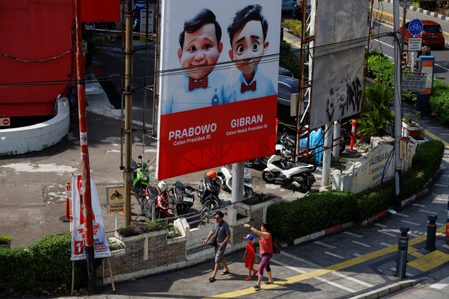
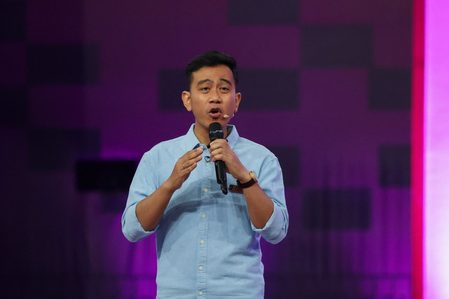



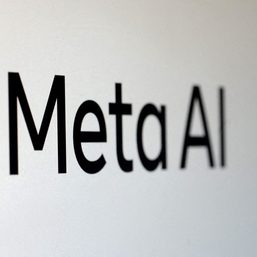










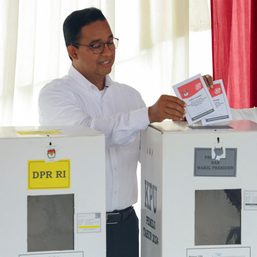
There are no comments yet. Add your comment to start the conversation.